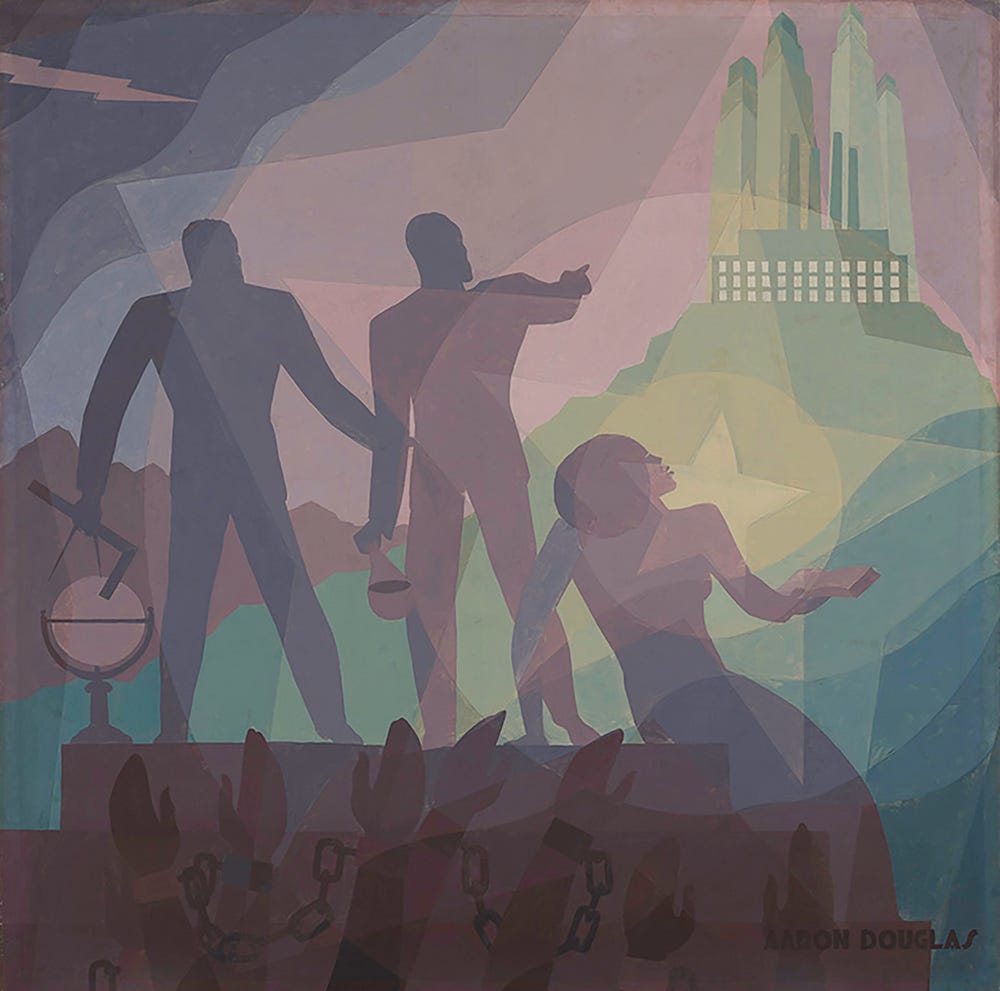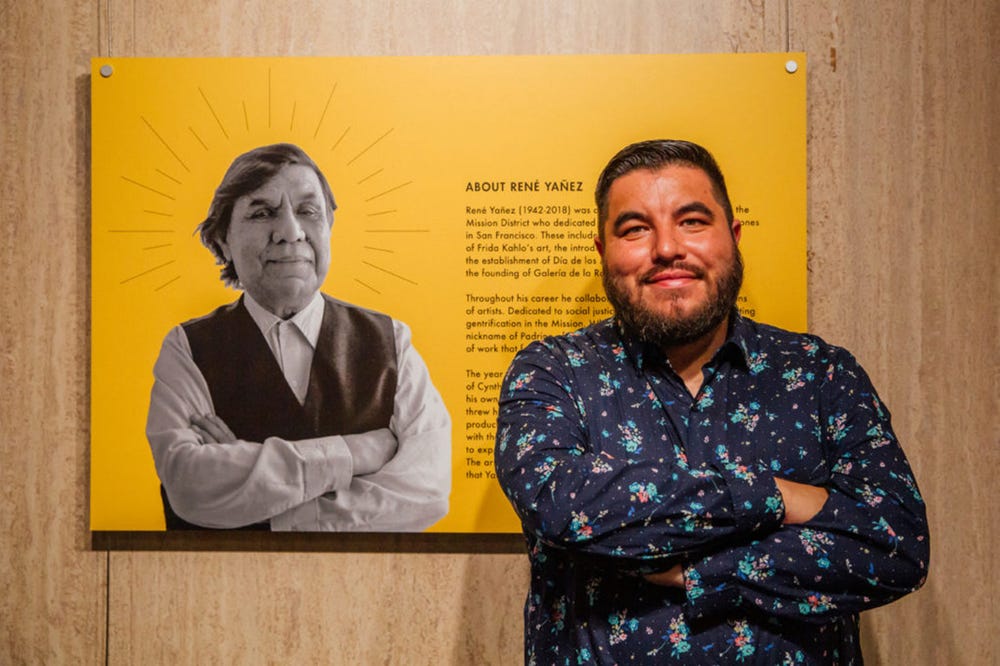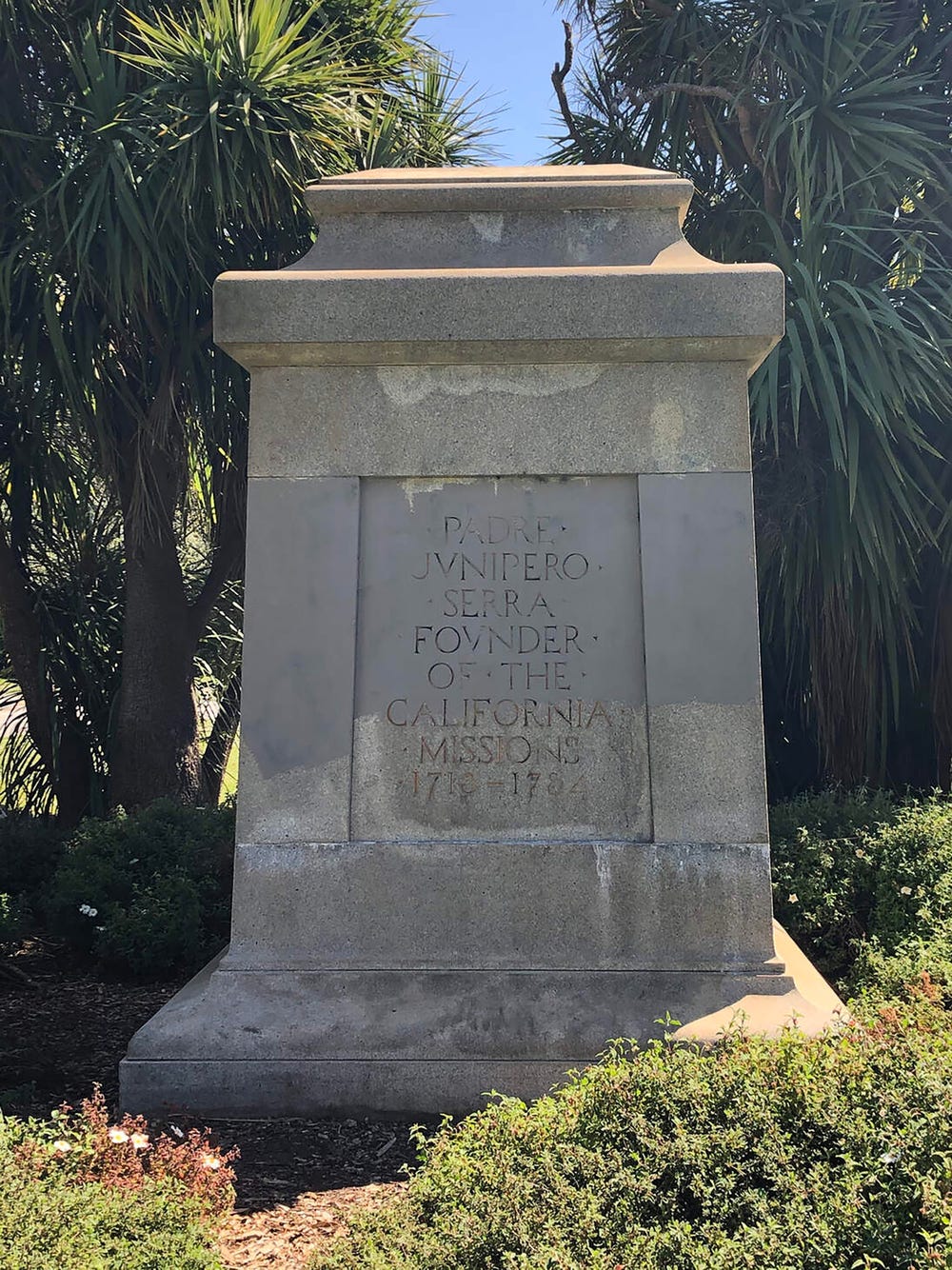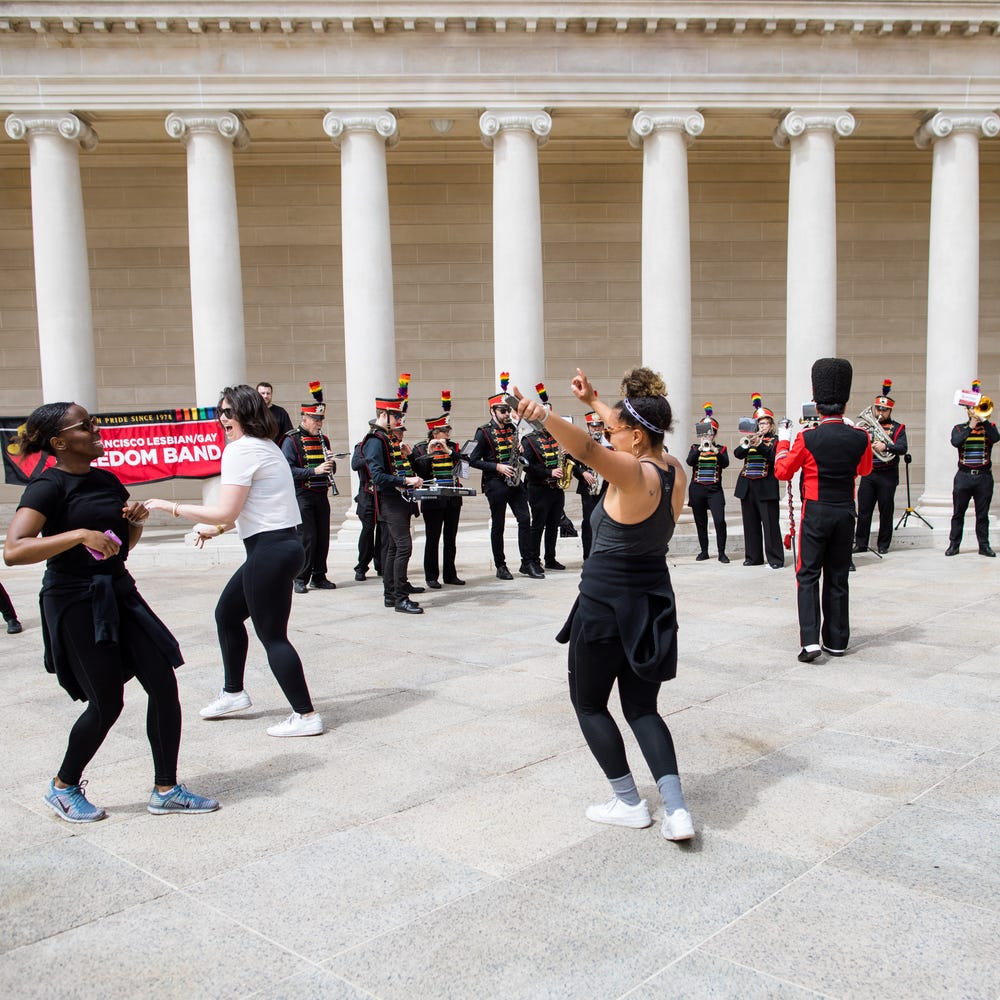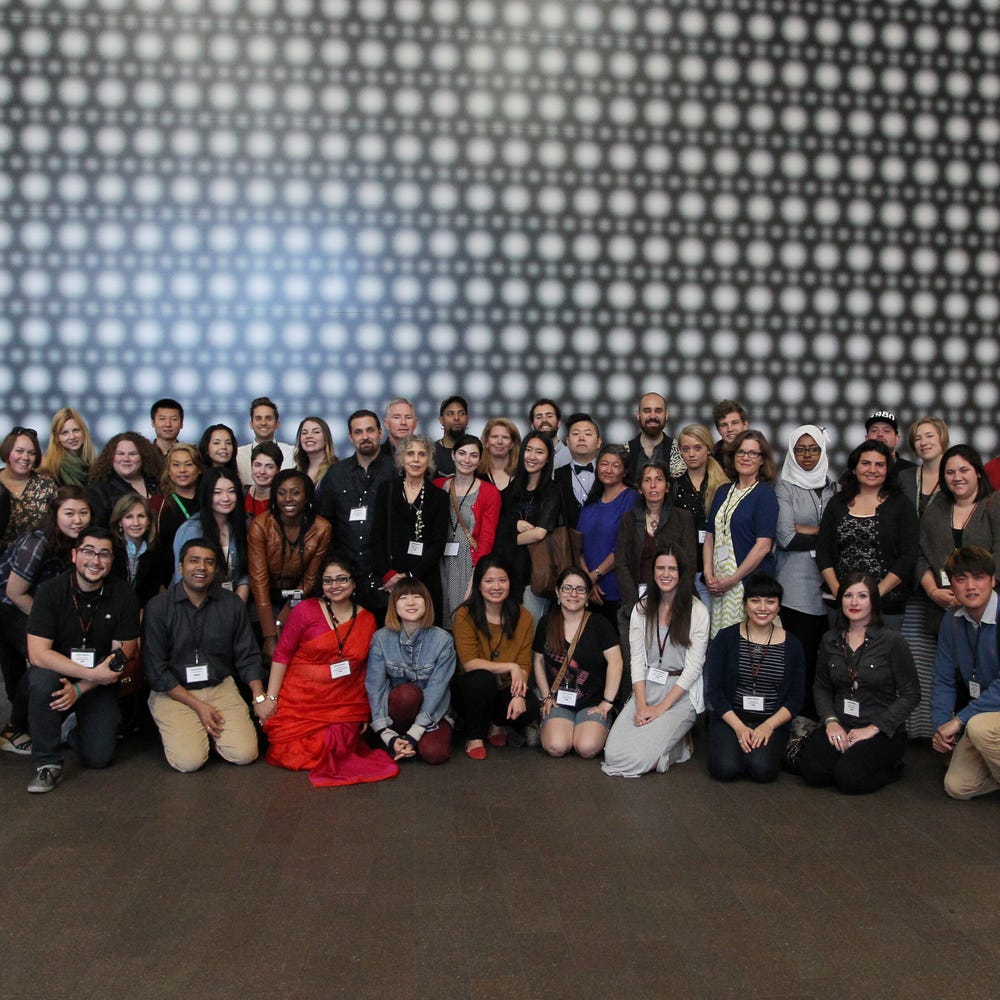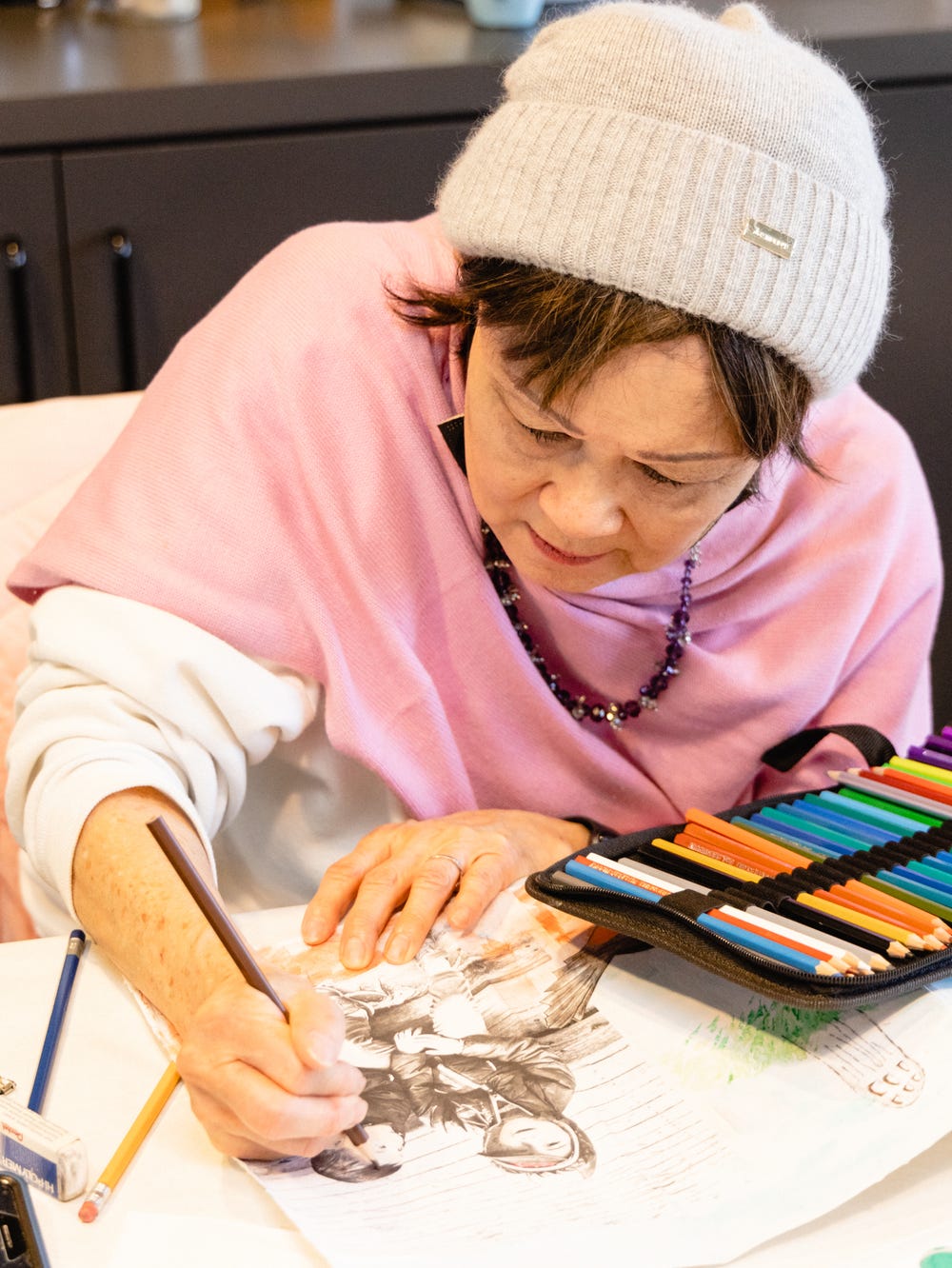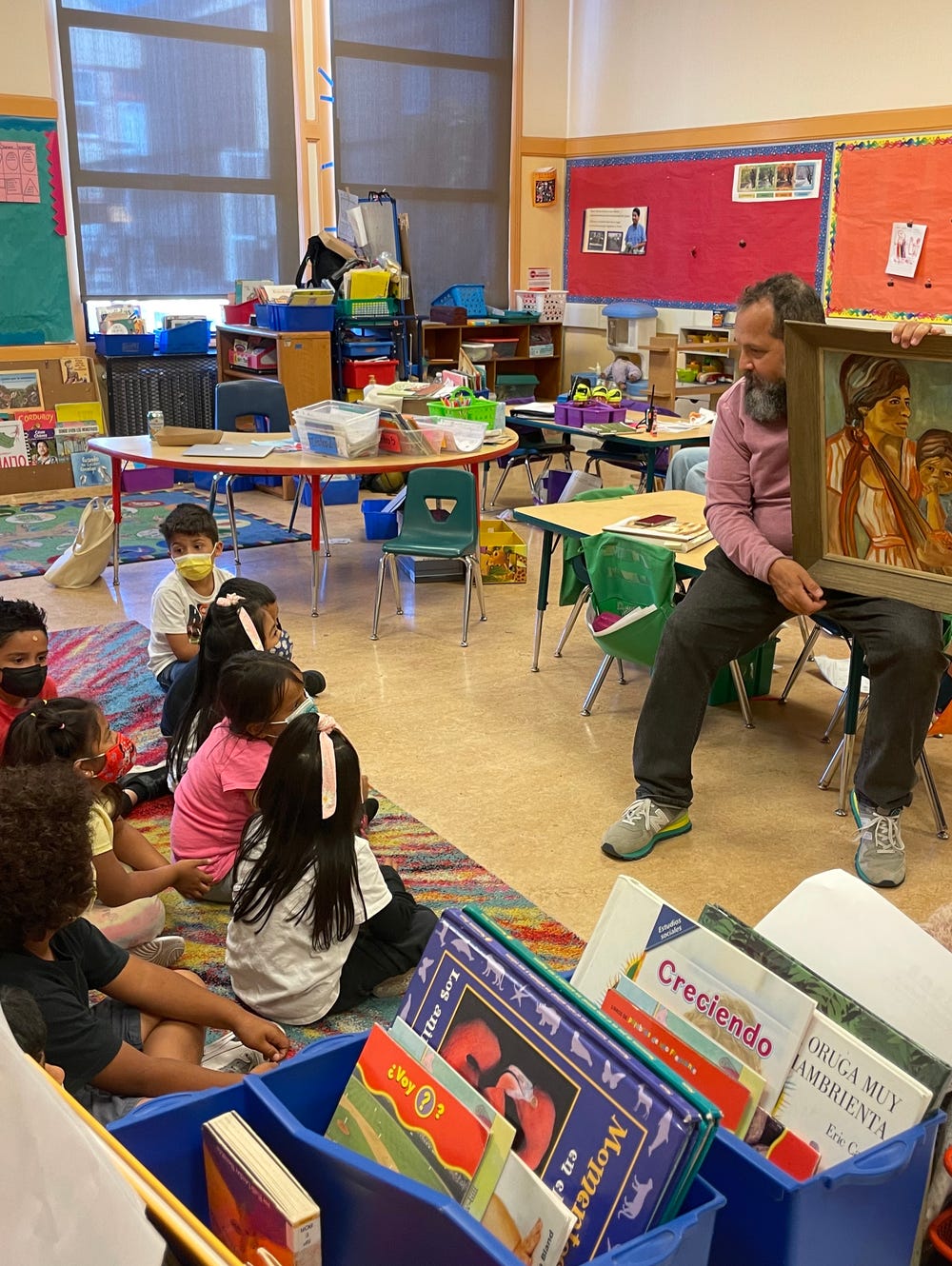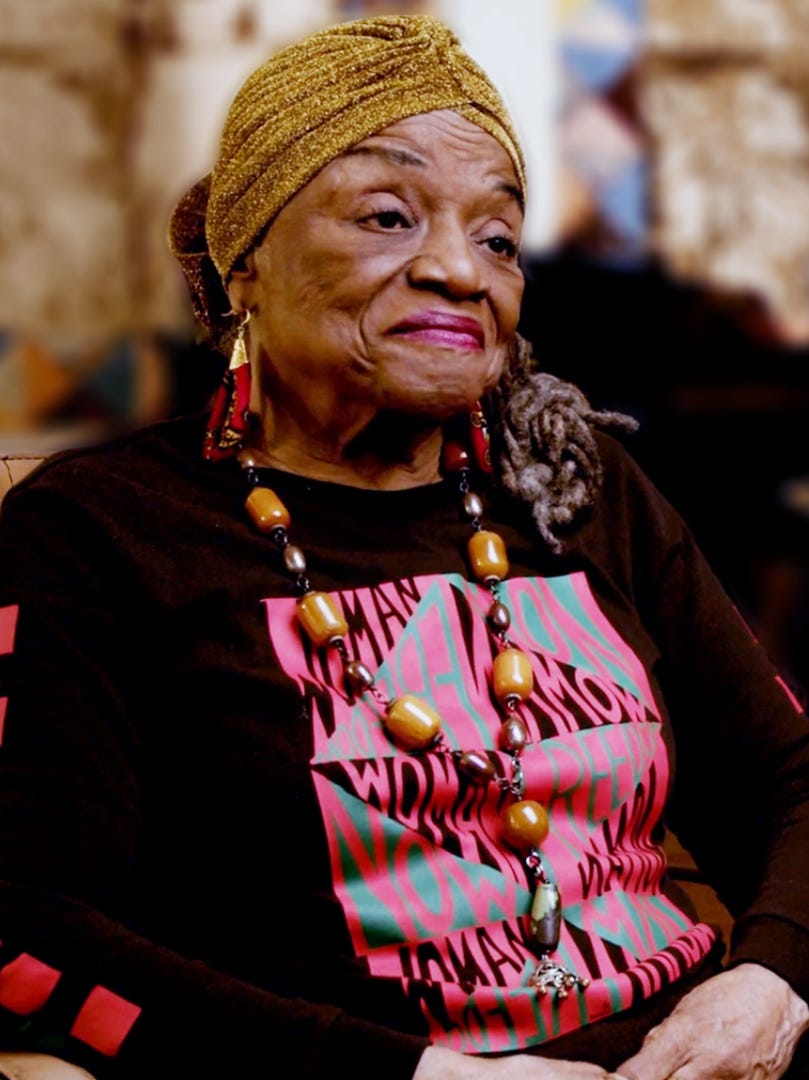In March 2020, the Fine Arts Museums of San Francisco suspended all in-person education programming due to COVID-19. We, as museum educators, were challenged to transition our on-site programming to digital platforms. In May, the murder of George Floyd reflected back to the world the horrific realities of systemic racism. American museums awakened to their own institutional culpability in supporting the narrative of white dominant culture. Sheltering in place, and this overdue reckoning, compelled us to reimagine our work as educators and to find new ways to support our communities in a time of great need. What do education programs look like without original works of art in a physical space? How do we correct our missteps in retelling colonial narratives and perpetuating racist practices? - Introduction by Sheila Pressley, Director of Education
It was necessary for us to ask ourselves, ‘What do our immediate communities need? What is our role? What can we realistically do?’
The Creation of “Local Voices”
Pre-COVID, we had collaborated with local artists and community leaders on programs to provide more inclusive narratives. We knew we needed to double down on raising voices from outside the Museums, and we knew those voices needed to exist in an online platform. We turned back to the three questions above (“What do our immediate communities need? What is our role? What can we realistically do?”). Local Voices, a new podcast series, was born out of our commitment to fostering partnerships with local artists, connecting audiences with the rich Bay Area arts community, and elevating important and interesting conversations. We selected a podcast format in order to deliver content that did not necessitate screen time, maximize audio-production value, and build on learnings from a previous podcast that we had produced in 2018.
When the Fine Arts Museums closed in compliance with San Francisco’s March 2020 shelter-in-place order, we were just one week away from the opening-day celebration and the launch of a robust programming schedule for the exhibition Frida Kahlo: Appearances Can Be Deceiving. Recognizing the deep and long-standing relationship between Kahlo and the people of San Francisco, we collaborated with Rio Yañez, community organizer and artist, whose father, René Yañez (1942–2018), was responsible for bringing the first Frida Kahlo exhibition to San Francisco in the 1970s. In the years since, both have been inspiring leaders in the local artist community.
The many public programs we spent months creating with Yañez were unfortunately, but understandably, canceled. To pivot, we pitched the idea of Local Voices to Yañez and asked him to help us curate a roster of artists for a podcast. We respected and trusted Yañez’s vision and his relationships with the local artists that he had fostered over the years. Together, through trial and error, we embarked on creating the first eight-episode series of the Local Voices podcast.
At first, we were laser-beam focused on giving our collaborators an open platform and unlimited freedom to share their stories without too many guidelines or—as we saw it, interference—from the Museums. However, we came to realize that more structure and facilitation from our end was beneficial; without knowing it, we had placed too much work on our partners. We learned not to make assumptions and to work harder to learn about and meet our collaborators’ needs.
Rio Yañez, Host of “Local Voices: Celebrating Frida Kahlo.”
Local Voices: Celebrating Frida Kahlo, released in September 2020, brought together Bay Area residents from various artistic backgrounds and lived experiences who share a love and admiration for, and derive inspiration from, the iconic Mexican painter Frida Kahlo. They not only helped podcast audiences connect with Kahlo and the exhibition’s themes in a very personal manner, but they were also able to highlight and share their own artistic practices.
Local Teens and “Local Voices”
In 2018 the Museums’ Teen Programs had produced Beyond the Paint, a six-episode podcast in support of the exhibition Contemporary Muslim Fashions. Building on the strength of Beyond the Paint in highlighting youth voices within the Museums, and in keeping with our goal of providing meaningful opportunities for youths, in the difficult summer of 2020 we transformed our usual on-site internship into a virtual program focused on creating youth-made content that responded to the Museums’ permanent collections.
Through a partnership with San Francisco’s “Opportunities for All” program, an initiative connecting the city’s youth to job training and mentorship opportunities, we welcomed nine Bay Area teens to the FAMSF and invited them to share their perspectives and reflections on objects in the Museums’ collections. The teen-created podcast, called Local Voices: Teens Take on Art, was released in January 2021. The teens carefully selected artworks that were personally meaningful and sparked their curiosity. Their choices were wide-ranging and spanned time and geography, including Bay Area artist Mel Ramos’s Superman, a Hornbill mask from Liberia, and a Roman sarcophagus.
One artwork chosen by the teens for their podcast: Aaron Douglas, Aspiration, 1936. Oil on canvas, 60 x 60 in. (152.4 x 152.4 cm). Museum purchase, 1997.84. Art © Heirs of Aaron Douglas
To gather information and insights about the artworks, the teens spoke to curators and scholars, as well as to their family, peers, and community members. One teen spoke to her sister, an artist, to get her thoughts on Johnny Warangkula Tjupurrula’s dazzling Children's Story (Water Dreaming for Two Children). Another teen invited a friend to discuss Soundsuit by Nick Cave. De’Yani Dillard talked to her mother about the depiction of Christ in Rodrigo de Osona the Elder’s Adoration of the Magi.
The teens’ layered perspectives provided a rare opportunity for multiple, and sometimes unheard, voices to speak about the collections. Producing a youth-led podcast that reflects a variety of awarenesses and connections gave us another way to expand the stories we tell.
Read more about the teens in an interview on 48hills.
The Progress of Our Work in Progress
Each season of Local Voices has pushed us to be more flexible, patient, and intentional with our community partners. Our goal is to make the process as meaningful as the final product. The quality of the finished podcasts highlight the value of elevating voices from outside of the organization, listening to the feedback we receive, and letting our relationships be at the core of our work.
What is next? These critical learnings are informing the development of the next season of Local Voices. On June 19, 2020, the public monuments in Golden Gate Park’s Music Concourse, which is directly in front of the de Young museum, were targeted during protests calling for an end to police brutality and a demand to re-examine the narratives in our country's history. This resulted in the removal of several statues. The protestors’ actions were a loud-and-clear message that we need to engage with critical and long-overdue national conversations of power and representation in our public spaces. To examine the issue, the third iteration of Local Voices will focus on Bay Area public art and monuments, bringing together accomplished individuals to explore the importance, complexities, and legacy of our public spaces. Season three is in its early stages of development and is already taking on a form very different from the previous two seasons. We are excited to get to know each of the artists and explore the parallels between their works and their experience with public art.
The unoccupied pedestal, which previously supported a statue of Junípero Serra. Photo by Céline Chretien
So, were we able to re-create our on-site programs in a digital format? Not exactly—and that’s okay. We have learned there is power in virtual offerings. Today we are devising new ways to measure and understand success. The Local Voices podcast forefronts our focus on inclusivity, community engagement, and interpretation, and we hope that after every episode listeners feel empowered to dig deeper and explore the episode’s topic on their own. But what does this look like, and is this actually happening? We are currently working to better understand the impact of our programs, but we can share that we are optimistic about the future of this program, and our other educational initiatives, as we strive to create programs that are centered on people and are in alignment with our stated values.
Text by Maria Egoavil, Public Programs Coordinator; and PJ Policarpio, Manager of Youth Development.
